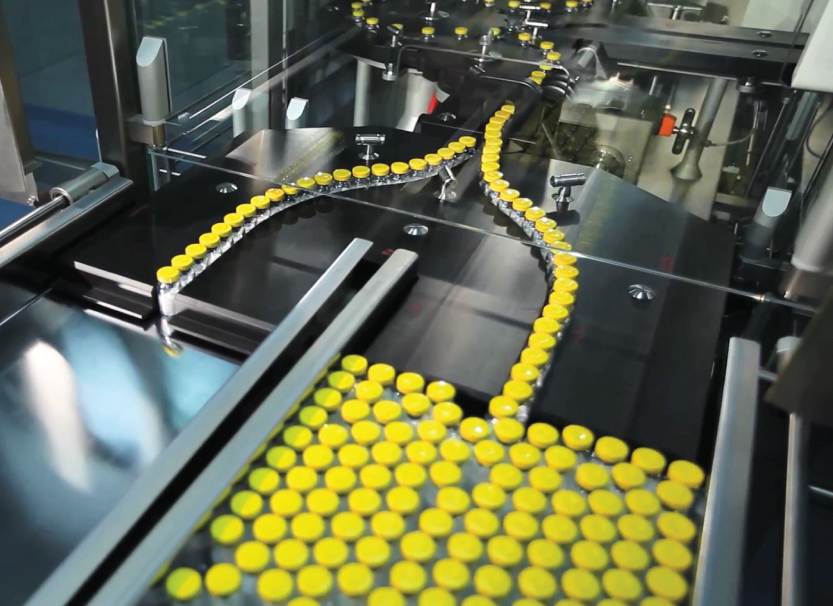
U.S. Executive Orders Shine Spotlight on India’s Life Sciences Industry
Three recent U.S. Executive Orders have significant consequences for India with its outsized role in global generic drug supply. The policy changes offer both opportunity and increased scrutiny for Indian drug manufacturers. Arif Noorani and Ryan Tan discuss proactive steps manufacturers can take.
The Union of AI and Drug Discovery and Development Requires New Thinking for Structuring and Negotiating Strategic Transactions, and a Rigorous Analysis of Applicable Regulatory Considerations
The use of artificial intelligence and machine learning (AI/ML) in drug discovery and development is well established and here to stay. With AI tools developing the potential to impact virtually every stage of the life sciences product life cycle, the FDA continues to refine its framework for the use of AI to support regulatory decision-making. On April 7, the FDA ended its consultation period on two draft guidance documents, one containing recommendations on the use of AI to support FDA regulatory decision-making and another providing a “comprehensive approach” to the management of risk throughout the total product life cycle of AI-enabled devices. We also saw, in January of this year, the U.S. administration issue the Executive Order Removing Barriers to American Leadership in Artificial Intelligence. These developments, and potential developments, need to be carefully taken into account by life sciences companies that are considering transacting with an AI/ML tool provider.
“Refreshed” UK-wide Innovative Licensing and Access Pathway (ILAP) Applications Now Open
Commercial and pre-commercial developers of potentially transformative medicines or drug-device combination products can now utilize a unique accelerated regulatory pathway in the UK. Article authored by Marie Manley and Victoria Kerr. (more…)

How Life Sciences Companies Can Respond To DOJ’s Focus on Clinical Trial Fraud
For the past two years, clinical trial fraud has been a key enforcement area for the U.S. Department of Justice’s (DOJ) Consumer Protection Branch (CPB). David Ludlow and Julea Lipiz set out considerations for life sciences companies to help mitigate scrutiny of their trial results and related products.

European Court of Justice Judgment Relating to Orphan Market Exclusivity
In a recent judgment, the Court of Justice of the European Union (CJEU) has shed light on the scope of the ‘clinical superiority’ criteria providing for a derogation to orphan market exclusivity which is key to protect the orphan molecule from competition for the period of market exclusivity (10 or 12 years as the case may be). Marie Manley, Chris Boyle, and Alix Vermulst examine the impact of this judgment on pharmaceutical companies.

As U.S. Biosecure Act Passes the House, Four Things Biotechs Can Do to Prepare
The U.S. Senate may still reject the U.S. BIOSECURE Act , but the House of Representatives has now passed a version of the bill. Biotechs in both the P.R.C. and the U.S. therefore need to prepare for the new environment which it heralds. Michael Borden, Andrew Shoyer, and Ruchun Ji set out five steps to take now.
Are the revisions to the EU’s ‘Bolar’ system compatible with TRIPS?
The EU’s proposal to speed up generic and biosimilar market access by expanding the “Bolar exemption” to pricing and reimbursement procedures raises significant international IP law concerns, as it is probably incompatible with its obligations under the WTO Agreement on Trade-Related Aspects of Intellectual Property Rights (TRIPS). Maarten Meulenbelt, Chris Boyle, Lauren Shapiro, Maryanne Kamau, and Alix Vermulst explain.
How, When, and If the U.S. BIOSECURE Act Is Likely to Become Law
Both U.S. and P.R.C.-based biotechs are anxiously watching attempts to pass the U.S. BIOSECURE Act into law. Michael Borden and Andrew Shoyer explain what this month’s developments mean, and why the legislation, even with so much attention and publicity, may never actually become law.
AI-Powered Drug Discovery Efforts Could Lead to New Treatments
Stephen Abreu, Sidley partner, talks to Colin Hill, CEO and Co-Founder of AI-powered drug discovery company Aitia, about how the use of AI is revolutionizing the biotech space.

